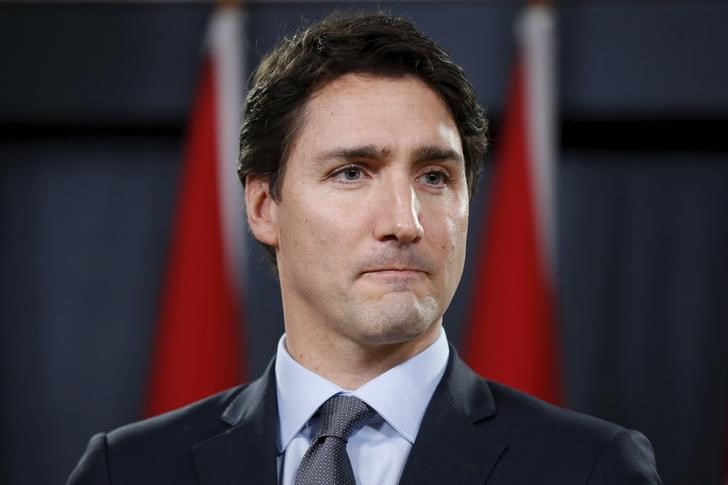By Ketki Saxena
Investing.com While announcing federal support for a housing project in Hamilton, Ontario, yesterday, Canadian Prime Minister Justin Trudeau delivered comments that indicated a marked change in the federal government's rhetoric on the Canadian housing affordability crisis.
“I’ll be blunt: Housing isn’t a primary federal responsibility,” Trudeau said. “It’s not something that we have direct carriage of, but it is something that we can and must help with.”
Interestingly, making housing more affordable was a primary pledge that Trudeau campaigned on during the 2015 elections.
“Safe, adequate, and affordable housing is essential to building strong families, strong communities, and a strong economy,” Trudeau had said on the campaign trail in 2015.
“We have a plan to make housing more affordable for those who need it most – seniors, persons with disabilities, lower-income families, and Canadians working hard to join the middle class.”
Trudeau's plans at the time included financing "the construction of new, affordable rental housing for middle- and low-income Canadians", repurposing federal land and buildings to "make it available at low cost for affordable housing in communities where there is a pressing need", and to "Review escalating home prices in high-priced markets – like Vancouver and Toronto – to keep home ownership within reach for Canadians living in these areas."
Trudeau's plans also included doubling the pace of housing starts over the next decade - which remain well behind target.
Since then, the effects of this plan have failed to materialize.
While Trudeau has since rolled out an $82 billion (US$62 billion) national housing strategy, there has been little positive impact in increasing the affordability of Canadian housing.
Back in 2015 - when Trudeau was campaigning - the average Canadian house price was $413,000.
That figure now stands at $709,218 as of June, as per the Canadian Real Estate Assosciation.
Trudeu blames the jump in housing prices on a variety of factors - including high-interest rates, inaction by provincial and municipal governments, and the previous Conservative government in power prior to 2015.
“We want to keep inflation down so we can have interest rates start coming down again to help people be able to afford their own homes,” Trudeau noted.
He also pointed to provincial and municipal governments, who are in charge of land-use planning, zoning and permitting, as necessary to help resolve the crisis. “They need to be stepping up as well, particularly on affordable housing. That is something that the federal government is taking very seriously.”
He also blamed the Conservatives for the current housing crisis, saying that their decision to be "entirely out of the housing business for 10 years" was a key contribution to the supply crunch.
What Trudeau did not touch on as a cause for the crunch in housing supply, and as a driver of housing prices, was the Federal Government's record-high immigration targets.
In the last twelve months, the Liberal government has welcomed more than a million people to the country last year, straining already crunched housing supply.
The Bottom Line?
Trudeau's comments show that - whatever he may have promised in the 2015 election year - the Liberal government “is giving up on solving the housing crisis it created,” said John Pasalis, president of Toronto-based real estate brokerage company Realosophy Realty.
“Our federal government is supercharging the demand for housing by rapidly increasing Canada’s population growth rate without any regard for where people will live and is now blaming the provinces and cities for not doing the impossible – tripling the number of homes they build each year".
